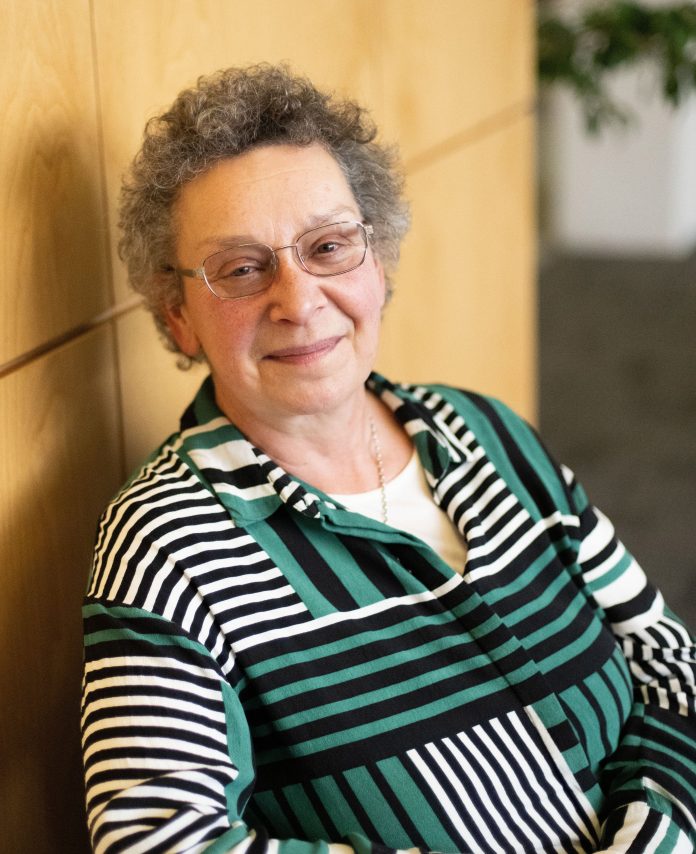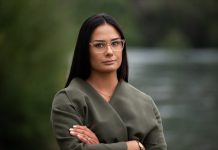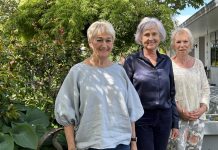
After a career spanning four decades, Kathy de Luc has called time on the health sector.
Dr de Luc retired from her role as Central Otago Health Services Ltd (COHSL) chief executive after four and a-half years last week.
Originally from the United Kingdom, she moved to Central Otago from Auckland for the role in 2019.
COHSL is a communityowned, not-for-profit company which is responsible for providing health services out of Dunstan Hospital, in Clyde.
Its base funding comes primarily from Te Whatu Ora — previously the Southern District Health Board — as well as private contracts, and is charged with meeting a wide range of health needs in Central Otago and the Lakes District, covering more than 25,000 people.
A passionate advocate for the rural health sector, Dr de Luc said it was a difficult decision to leave, but the timing was right for her to retire.
She would remain in Alexandra but was looking forward to a better work-life balance and the chance to travel.
During Dr de Luc’s tenure she juggled the needs of the community-owned health organisation amidst a regionwide population boom, the Covid-19 global pandemic and the centralisation of the nation’s district health boards to a single entity, Te Whatu Ora — no small task.
Despite the challenges, Dr de Luc said there were many things she was proud of during her time at Dunstan.
The spirit of Dunstan was ‘‘strong’’ and there was a tangible sense of community.
‘‘That’s the thing people often say to me is you feel the atmosphere as you walk inside the door because it’s a community, it’s a community hospital and it’s very clear about what it is to serve its community,’’ she said.
Reflecting on her work, two things stood out for Dr de Luc — the organisation’s response to Covid-19, and implementing a more culturally responsive service.
It now had a hakui (elder woman) with a formal role to provide cultural guidance to the health provider to help ensure it was delivering a culturally responsive service for all the region’s population.
‘‘For example, how we ask certain questions around ethnicity etc . . . coming to hospital and within community services, it’s a stressful time — usually people are upset or stressed and we want to make it as comfortable for people as we possibly can,’’ Dr de Luc said.
‘‘I’m just really pleased at how the whole team has responded to that.
‘‘It’s a journey and we’ll continue developing it.’’
The Covid-19 pandemic had impacted the region and Dr de Luc said she was proud of the organisation’s response to Covid for the whole community.
‘‘The team within Dunstan and the community service, the response was just amazing from them all — looking after everyone’s wellbeing, they just kept going. That’s what we focused on to get the job done,’’ she said.
However, with Covid still active in the community, the work was not over, she said.
Covid-19 had also taken focus from what Dr de Luc felt was an issue when she first came in to the role in 2019 — the need for a long-term plan addressing the delivery of rural health services in Central Otago.
‘‘That is still sitting there as, I believe, a significant issue that needs to be addressed,’’ she said.
The lack of a Central Otago focused long-term plan had flow-on effects to healthcare in the region, impacting future planning and resourcing.
With the move from the DHB model to a national health body, development of a region wide plan sat with Te Whatu Ora.
Dr de Luc was grateful for the support she had received from the community and the staff.
‘‘They have been amazing, every single one of them,’’ she said.
COHSL’s new chief executive starts at the end of August.




